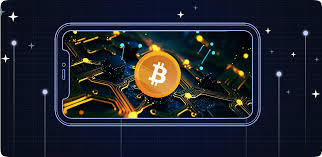RCS isn’t completely brand new – it has been around for some time only it was left to the “middlemen” to roll it out – networks or carriers.
Back in the year 2014, UK, the network Vodafone adopted the service.
However, the problem was – Vodafone UK was the only one to adopt RCS, so only the Android devices in the UK using the RCS-enabled networks were able to use it.
But what is RCS anyways? Have you heard about it before?
RCS Is The Next-Gen SMS Messaging

RCS stands for “rich communication service” if that doesn’t make any sense, we could call it the next generation SMS messaging, and in the not-so-far future, RCS will replace SMS and MMS – which are used by the majority now.
If you know what’s iMessage, then RCS is the non-Apple version of it – the feature Android users weren’t able to experience.
You might wonder how RCS can change your life if you replace SMS and MMS with it?
Just imagine if the SMS evolved, you would be able to send long text messages with almost no character limit, you’d be able to create groups, send pictures and videos, and even share live locations.
RCS has a huge potential to be an iMessage rival made by Google for Android devices.
Let’s take a look at some “pros” and “cons” of RCS.
Positives of RCS
- Literally, the unlimited character limit for messages, unlike SMS.
- You can create group chats
- Content sharing (pictures, videos, audio)
- Live location sharing
- Video calls
- Ability to blacklist
Negatives of RCS
- No end-to-end encryption
- Can’t sync messages when switching devices
- Not much support and availability
- There isn’t a central database
Google Stands Up For Android Users

So far Android had failed to create enhanced messaging for its users, even though, there were some efforts, they all ended up titled as failed chat apps and made Android users go to third-party services/apps.
I’m talking about Whatsapp or Facebook Messenger.
But Google didn’t give up and continued putting in work, so now they are able to offer RCS to Android users in the UK and France without the support of networks/carriers.
It finally has happened after two years since showing off what the Rich Communication Services might look like for the first time.
However, we have one problem though.
Google didn’t reveal any information about when RCS will be available in other regions – not only in the UK and France.
Anyways, those are still good news for Android users as it gives some hope.
If you can’t imagine how Google’s RCS will work, then basically, the Messages app on your Android will be able to send RCS messages with the help of Google’s servers, so you won’t need to use a mobile phone network.
The Messages app on your Android device will be able to switch between the protocols (RCS, SMS, and MMS) pretty much like iMessage.
Whatsapp or other third-party services won’t be necessary anymore, but to get this new chat feature on your Android, you’ll need to accept Google’s terms of service and opt-in manually.
Does That Mean You’ll Be Able to Completely Ditch Third-Party Chat Apps?

Thanks to iPhone users – no.
Simply because, Apple won’t support RCS, so you’ll have to switch to SMS or MMS when chatting with a friend who is an iPhone user.
In other words: If all the people in the group chat aren’t using RCS, it will switch back to SMS or MMS.
You Can Try RCS Now!

To see if your device supports RCS you don’t have to do anything special.
Just go to your Messages app, then, open the “3 dots” (menu) on the top-right corner, tap settings and then chat features.
It will show you if RCS is available to you.
When you will be chatting with someone who’s also RCS-enabled, you will see it in the app, but if they’re not using RCS, the app will go back to using SMS.
But there is a Problem Though…
As you might’ve noticed in the list of negatives for RCS – it doesn’t have end-to-end encryption, making your government able to read your messages without your permission.
However, Google values your privacy and they are working on fixing that issue.
Google has said they believe that your messages are a very personal thing and it deserves privacy, so that is the reason why they’re fixing this problem.
Also, Google is fixing another problem of RCS messaging (having no central database), so you can sync your chats when you decide to switch devices.
RCS can become a replacement for third-party apps and SMS/MMS, but there’s still a long way ahead to reach those heights.
Keep in mind, that this is only the first chapter of RCS and it is taking its first steps in the big world.











